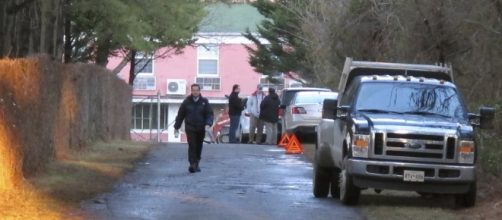While U.S. President Donald Trump denies that Russia meddled in the U.S. election, suspicions of his favoring Russia were further fueled by a plan by his administration to return to Moscow two diplomatic compounds. The two facilities in New York City and Maryland were seized in December as punishment for Russia’s interfering in the 2016 election.
Then U.S. President Barack Obama ordered the closure of the two Russian diplomatic compounds in December 2016 as sanctions for Moscow’s interference in the 2016 election. But in early May, Trump hinted the U.S.
would return the two compounds to Russia in exchange for Moscow lifting a 2014 freeze on the construction of a new U.S. consulate in St. Petersburg, The Washington Post reported.
Washington does an about-face
However, two days after, Washington did an 180-degree turn. Secretary of State Rex Tillerson informed Russian Ambassador to the U.S. Sergey Kislyak and Russian Foreign Minister Sergei Lavrov in a meeting in Washington there would be no more conditions.
The about-face did not sit well with Max Bergman, a Russia expert, and a former State Department official in the Obama administration. He pointed out that in the last few months, the U.S. was not the only country that Russia interfered in the national elections but also France and The Netherlands.
For Bergman, the Trump administration’s plan to return the two compounds with no conditions has no justification. He accused the president of acting in the interests of a hostile foreign power over that of the U.S. Bergman also scored Congress for continuing to block more sanctions against Russia.
A child can hack U.S. elections
Russian President Vladimir Putin, besides consistently denying Moscow meddled in the U.S. election, initially blamed U.S. intelligence agencies for using fake evidence to pinpoint the loss of Democratic candidate Hillary Clinton on Russian interference. Then he conceded the meddling could be the work of patriotic Russians, but Putin said Moscow did not sanction it.
On Friday, in a panel discussion in St. Petersburg which Megyn Kelly of NBC News moderated, Putin went one step further and raised the possibility the hacking of the U.S. collection could even be the work of a child. The former KGB spy pointed out that IP addresses can be invented which a child can do. He said the hacking being attributed to a Russian Ip Address is not proof because even Kelly’s 5-year-old daughter could do that.
However, the FBI is not convinced that Russians had no hand in the election victory of Trump which is why former director James Comey will testify before the Senate Intelligence Committee next week.


